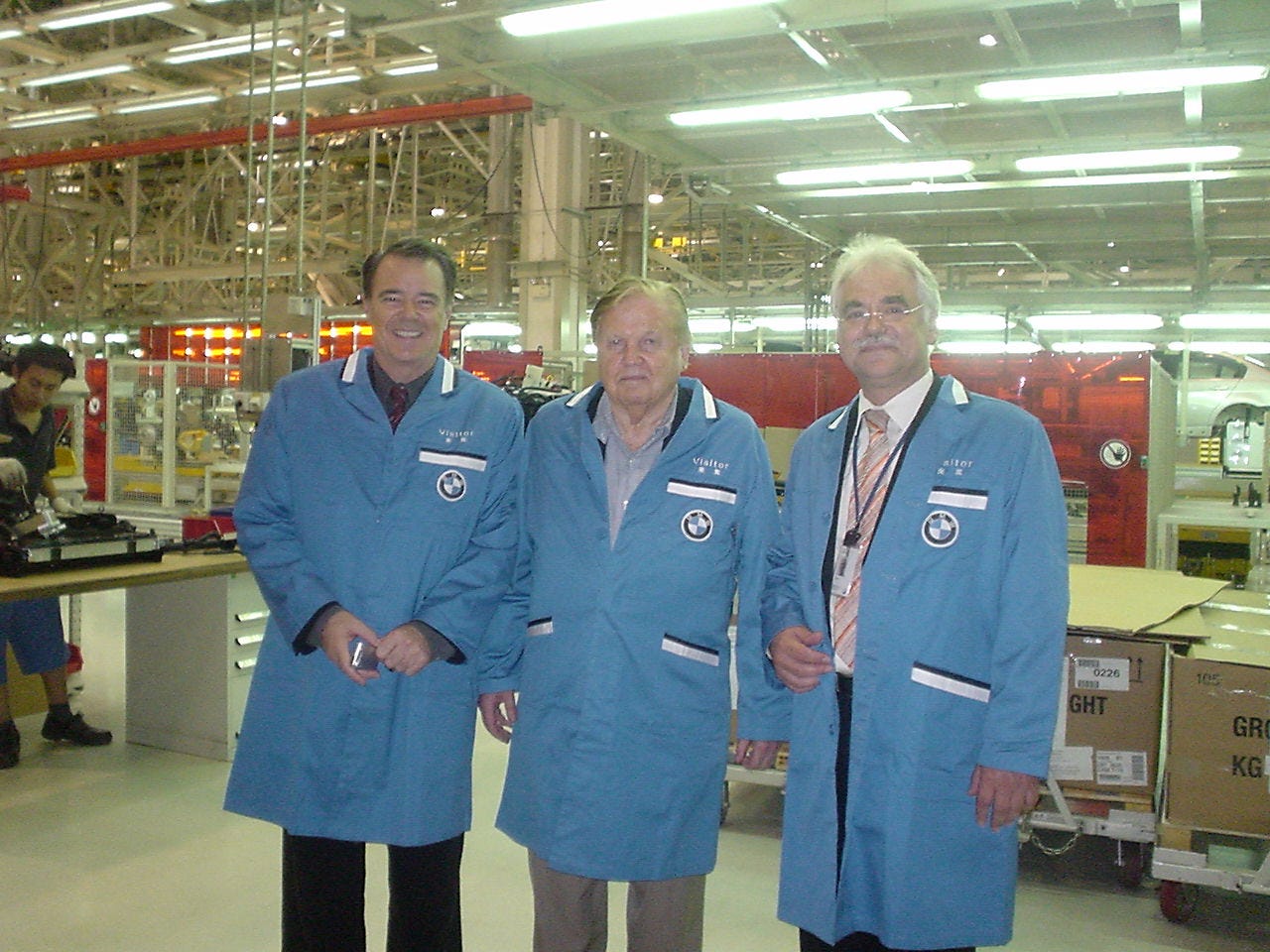My New (Tiny) BMW
(11/2/2005)
Thought you'd like hear about my new BMW. Bob Mundell and I each received one as a gift in Shenyang a few weeks ago when we spent an afternoon at BMW's factory there. It is only about 8 inches long (which is more than a lot of guys can say). Some day I hope to give enough speeches to be able to buy a larger one. For now I will just drive this one around on my desk and make motor noises. Vrooom.
I brought my tiny BMW to the Squawk Box set this morning because I wanted to make a point about inflation. It is made with exquisite detail. It has a perfect paint job. The hood, trunk, and doors open. It has working independent suspension. It has pneumatic tires.
The interior is actually carpeted. The seats are rubber (not real leather; I'm thinking of complaining). The little switches on the servo-motors for the seat adjustments, the windows, and the console, are all separately and perfectly painted. The dash and console are burly walnut.
The (German) manager of the plant, which has a capacity of 130,000 cars per year (including the new 3 series), told us the quality ratings from his plant are the #1 in the world for BMW. The work force is the most motivated he has ever seen.
I showed the viewers my car because I want them to think about how this plant can afford to make such a beautiful, hand-crafted, product to give to a visitor for free. The answer, of course, is low costs. Almost all of the workers in the plant were 20-30 years old and had blue flames coming out from behind when they walked down the line. 60% were graduate engineers.
The starting wage? $180 per month. Think about it.
The gap between Chinese wages and prices and U.S. wages and prices is the most powerful organizing force for change in the world today. That gap cannot persist in an open global economy. Chinese wages are rising fast as they get access to more capital. U.S. real wages fell 2.4% last year. the arbitrage pressure created by the wage and price gap is driving the U.S. economy. It works through trade in goods in the old-fashioned way on ships carrying goods back and forth. It works by shipping services across fiber-optic cables in the form of photons. Both drive wages and prices together.
The most important macroeconomic implication of this is that, regardless of oil price swings or commodity price swings, there is a powerful undertow dragging the U.S. price level lower. This gives us a natural brake on inflation, making the Fed's job that much easier. It's manifestation is the Delphi/GM/airlines stories about U.S. domestic employers who cannot compete globally while carrying their historical legacy pension and health care costs.
In the case of the Fed, this implies that the yield curve will be restored to its more normal upward slope some time next year, not by increases in long-term rates, but through reductions in short-term rates when the Fed is forced to give up on their unwarranted tightening policy.


